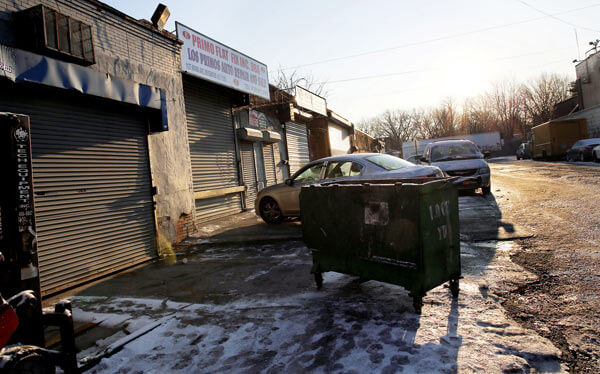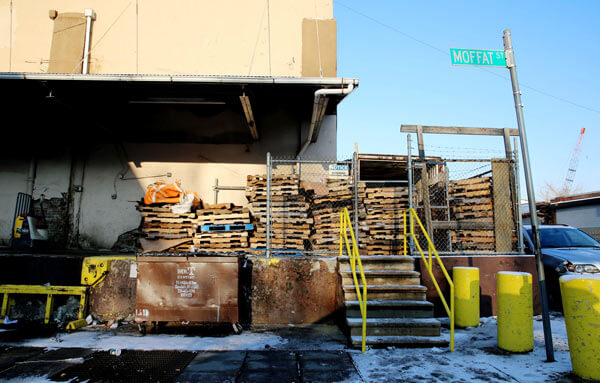By Sarina Trangle
Decades after a chemical company involved with the Manhattan Project closed, the government has returned to the defunct Ridgewood business in an attempt to designate it a Superfund site.
The U.S. Environmental Protection Agency announced Dec. 11 that it intends to place a 0.75-acre area near the shuttered Wolff-Alport Chemical Co. in the Superfund cleanup because it contains radioactive contamination.
Wolff-Alport operated out of 11-27 to 11-29 Irving Ave. until 1954, but the EPA’s plan also includes surrounding plots on Irving Avenue and 15-14 Cooper Ave., where toxic waste has been detected.
Customers and employees at a deli, auto body shop, construction company, ice-making facility and a few other businesses included in EPA’s proposal are not immediately in danger but could face elevated cancer risks over time, according to a 2012 health consultation report issued by the U.S. Department of Health and Human Services
“The EPA has taken steps to protect workers and nearby residents from immediate exposure to radiation,” Judith Enck, a regional EPA administrator, said. “By adding the site to the Superfund list, the EPA can continue its work to protect people living and working in the area from long-term exposure to radiation.”
After examining the extent of toxic contamination in Superfund sites and developing a plan to remediate hazards, the federal government attempts to bill responsible parties for cleanup work. The EPA said it was unclear whether a company contracted to work for the government could be held accountable for pollution at the Ridgewood site. If not, the federal government would foot the bill. Either way, Superfund status would direct more money to the former Wolff-Alport site.
Wolff-Alport, which was contracted to assist with the Manhattan Project on atomic bomb research, processed sand from the Belgian Congo to remove and sell rare elements from 1920-54. The company disposed of hazardous and radioactive by-products, including thorium and uranium, by dumping them in the sewer until the Atomic Energy Commission ordered it to stop in 1947.
Tests conducted during the 1970s and ’80s revealed radioactive contamination in buildings, soil and sewers near Irving and Cooper avenues, but the hazardous material did not exceed health guidelines at the time, according to the Health and Human Services report.
After the level of radiation deemed acceptable changed, the city and state began re-examining the area in 2007. Results detected radioactive material at least 20 feet below ground and suggested a sewage line and manholes may be contaminated, the EPA said.
Radiation levels in front of 11-29 Irving Ave. were deemed at least 75 times higher than on the average city block, according to the U.S. Department of Health and Human Services report. The document concluded people who regularly walk on sidewalks along Irving Avenue and workers at Los Primos Auto Body Shop may have an elevated risk of developing cancer.
Alberto Rodriguez, manager of Los Primos, said he had spent 14 years working at the car shop and was concerned about the contamination.
“It’s no good for the salud, no good,” he said, using the Spanish word for “health.”
The EPA began taking steps to prevent exposure in 2012 and has since spent $2 million at the site.
The agency used concrete to seal a hole leaking radioactive gas into a storage unit at PS/IS 384. Though the school is a block and a half away from the old chemical company, EPA has not included it in the proposed Superfund site. The agency said recent tests show students and staff are not in danger.
The EPA staff also placed concrete, lead and steel under sidewalks and buildings included in the anticipated cleanup site.
Rodriguez said EPA workers spent about three months installing barriers beneath Los Primos’ floor this fall and that his team tried to work as much as possible during the construction.
“Customers is staying out,” Rodriguez said. “The business is down — slow.”
EPA will determine whether to formally designate the area a Superfund site after a 60-day public comment period.
Reach reporter Sarina Trangle at 718-260-4546 or by e-mail at strangle@cnglocal.com.



































